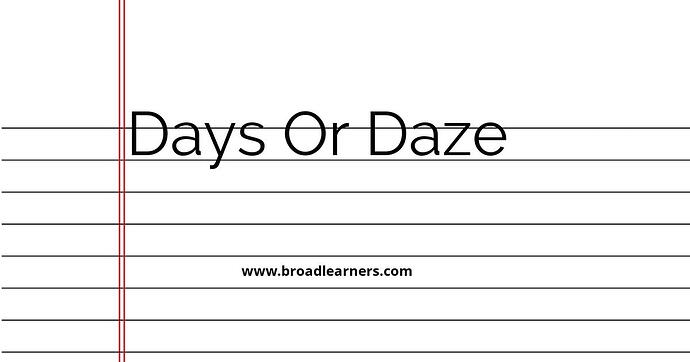'Days' and 'daze' are commonly confused words in English grammar. Understanding the difference between 'days' and 'daze' is important to use them correctly in written and spoken English.
'Days' is a noun that refers to a period of time consisting of 24 hours, usually from midnight to midnight. It is used to indicate the duration or specific days of the week.
'Daze' is a verb that means to stun or bewilder someone, often temporarily. It is used to describe a state of confusion or disorientation.
Let's take a closer look at the meanings and usage of 'days' and 'daze'.
| 'Days' | 'Daze' |
|---|---|
| The word 'days' is a noun that refers to a period of time. | The word 'daze' is a verb that means to stun or bewilder someone. |
|
|
To remember the difference between 'days' and 'daze', it can be helpful to remember that 'days' is a noun referring to a period of time, while 'daze' is a verb describing a state of confusion or disorientation.
Here are some examples of correct usage:
- I went on vacation for ten days. (referring to a period of time)
- The bright lights dazed me for a moment. (describing a state of confusion)
- She was in a daze after the roller coaster ride. (describing a state of disorientation)
Remembering the correct usage of 'days' and 'daze' will improve your grammar and communication skills.
